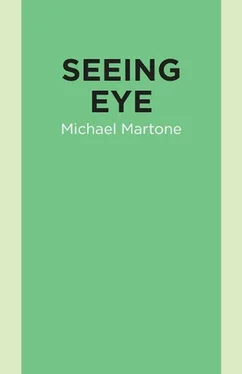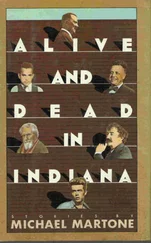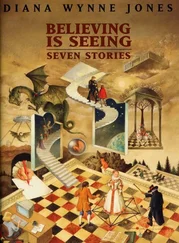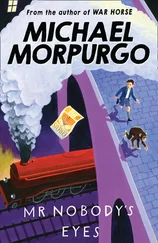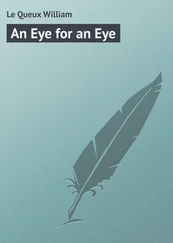Michael Martone - Seeing Eye
Здесь есть возможность читать онлайн «Michael Martone - Seeing Eye» весь текст электронной книги совершенно бесплатно (целиком полную версию без сокращений). В некоторых случаях можно слушать аудио, скачать через торрент в формате fb2 и присутствует краткое содержание. Год выпуска: 2013, Издательство: Dzanc Books, Жанр: Современная проза, на английском языке. Описание произведения, (предисловие) а так же отзывы посетителей доступны на портале библиотеки ЛибКат.
- Название:Seeing Eye
- Автор:
- Издательство:Dzanc Books
- Жанр:
- Год:2013
- ISBN:нет данных
- Рейтинг книги:5 / 5. Голосов: 1
-
Избранное:Добавить в избранное
- Отзывы:
-
Ваша оценка:
- 100
- 1
- 2
- 3
- 4
- 5
Seeing Eye: краткое содержание, описание и аннотация
Предлагаем к чтению аннотацию, описание, краткое содержание или предисловие (зависит от того, что написал сам автор книги «Seeing Eye»). Если вы не нашли необходимую информацию о книге — напишите в комментариях, мы постараемся отыскать её.
Seeing Eye — читать онлайн бесплатно полную книгу (весь текст) целиком
Ниже представлен текст книги, разбитый по страницам. Система сохранения места последней прочитанной страницы, позволяет с удобством читать онлайн бесплатно книгу «Seeing Eye», без необходимости каждый раз заново искать на чём Вы остановились. Поставьте закладку, и сможете в любой момент перейти на страницу, на которой закончили чтение.
Интервал:
Закладка:
“When I was a kid my mother told me to not go near the corn,” I told her. In the late summer you can get lost in it and panic. It swallows you up.
The weekend she visited the farm, I helped Dad clear out some scrap wood piled next to the barn. We all stood around while he decided what to move where. My mother teased Annie about the rats that would be hiding underneath the lumber.
“Stick your pant legs inside your boots, Annie,” she said. “They’ll go right up your leg. It looks like a burrow to them.”
Dad jiggled a two-by-four. I stood back a ways with a pitchfork. Annie curled over and stuffed her jeans inside her boots neatly. She did this straight-legged like she was stretching before a morning jog, her hair falling over her head. The rat broke out from beneath some barn wood and window frames, parting the dried grass, faking first toward my father, who tried to club it with a stick, then me, then my mother, who was stomping, but then it angled straight toward Annie as if it had heard my mother’s prediction. Annie stood perfectly still, her legs pressed together. I saw her shiver. The rat spun around toward me, standing between it and the woodpile. I pulled the fork back above my shoulders aiming at it as it sliced through the grass. I hesitated because I didn’t really want to kill it in front of Annie. The rat should have been killed. Its burrow was beneath the grain bin. I just couldn’t be gleeful about it. My mother was squealing. I sensed Dad lumbering toward me, thrilled by the chase. Annie stood like a post, as if she had rammed her boots into the ground when she had taken care of her cuffs. Her face was pale and blank. At my feet, I could see how fat the rat was, how sleek and brown, like a bubble of earth was squeezing along under the dead grass. Then, surrounded, the rat stopped dead still. And then, it jumped. It took off straight up, reaching the peak of its climb at my eye level, where we looked at each other. It hung there it seemed for a long time. The rat’s little legs were stretched out as if they were wings. It flashed its teeth then ducked its head and dove through my hands. I was twirling the pitchfork like a propeller, trying to find a way to bring the tines or the handle around to defend myself. I yelled. The rat disappeared again in the junk by the barn. We all stood there panting, clouds of dust wound round our faces. Our eyes were fixed on the spot in the air where the rat had hovered between us. I couldn’t get Annie to come into focus again. She was a blur a few paces beyond the clear empty space.
That night, Annie and I sat on the couch pretending to watch television. I turned the sound down low so I could hear my dad snoring, the sound drifting through the registers from the room next door. The lights were off. Annie’s white shirt turned blue in the flicker of the television. I tugged at her shirt, untucking it from her pants the way she had pulled her pant legs from her boots after the rat had disappeared and we all walked back to the house for dinner. As we kissed, I slid my hand up inside her shirt and covered her left breast. Then, my hands weren’t as hard as they were when I lived and worked at home. The only callus left was on my thumb, worn there by the trigger of the ice cream scoop. I rolled the nipple between my fingers and thumb. Even then I couldn’t help but think what she was thinking. Just that day she had watched me strip the milk from the cow’s tits. I’d wrapped my hand around her hands as she squeezed and pulled on the udders. Self-conscious, I traced a circle around her nipple a few times not to seem abrupt, then ran my hand over her ribs and let it fall on the flair of her hip. She shivered and turned her head away.
“What?’ I said.
“Your nails,” she said. “That rat.”
This all happened a while ago. It has been two years now since I’ve seen her.
The road to Purdue follows the remains of the old Wabash Canal. In some places the ditch is dry and leafy. In other places, black water has pooled, steeping logs slick with green slime. The towpath bristles with saplings and a ground fog of wild berry canes. Through the sycamores, sometimes, you can see the river itself, green from the tea of rotting leaves. Once, it had been important to hook the Great Lakes up with the Ohio and the Mississippi. The state went broke doing it. To the north is good farmland, a flat table leveled by the glaciers, but along the river the road rolls over the rubble of what they have left behind.
In the low-slung Continental, I was flying. The car leapt off the crests of the rolling hills, then settled again, the mushy shocks lunging with the revving engine. It was still early, though most people were already in bed. The security lamps in the farmyards and small towns draped streaks of light along the long hood like straps of wet paper. In fields beside the road, I saw the hulks of lulling cattle, the debris of herds scattered around like boulders in the glacial till these pastures are built on. The car couldn’t go fast enough to escape the gravity of the farm. I thought of my own herd drifting through the clover after Dad had turned them out. All their markings bleed together in the dark so that they become these lunky shadows, blotting out the stars rising behind them. I had raked the alfalfa in the neighboring field into wiggling windrows. The stink of the drying leaves hugs the ground and levels it again with a thick mist, the lightning bugs rising to its surface. For a second, my hands are on the yoke in the cockpit of the matte jet buzzing that field. The cows shimmer in the infrared goggles like hot coals in a pool of oil. The mown field pulses, smoldering with the heat of its own curing. The insects bubble through the haze to sparkle in the air. And I am looking down at myself sitting on the molten tractor, smoking, inhaling the fire of my fingertips, my sweat turning to light. I snapped out of the barrel roll, honked the horn twice, and coasted down the hill into Lafayette.
I got lost in the court of tin shacks where Annie lives, turned around on the rutted, dusty roads in the dark. Somewhere, she rented a half of one of the Quonset huts the university put up during the war and never tore down. Any effort to remove them brings howls of protest from sentimental alumni who remember conceiving their first children in one barrack or another, and the university administration loses interest in renovation. It is cheap housing, a place to store the international students who grow strange grains and vegetables in the empty plots that open up randomly in the court. The spaces mark where a shack has blown up, a yearly occurrence, torched by a malfunctioning gas heater, furnace, or range. The shacks all look alike, though some are decorated with flower boxes rigged by this term’s inmate. Bikes nose together in the long grass up against the corrugated siding of the houses. The galvanized metal of the buildings has oxidized over time, so now it has a finish akin to leather, grained and dull. I crept through the rows of shacks looking for the right number.
I had called her too. Her directions were highly detailed but useless to me since I didn’t know this place intimately enough to see the details. They were camouflaged by the repetition of forms. I was lost in a neighborhood of Monopoly houses. I only found her because she was sitting on the stoop outside her house watching for the car. When she saw me skittering along the cross street, she stood up and waved her arms over her head and whistled.
“The house is like an oven,” she told me. “I was an idiot to cook.” She had put on macaroni and cheese when she heard I was coming, and we ate sitting on the front stoop, our bowls balanced on our squeezed together knees. I could feel the heat on my back as it poured out the screen door. There were clouds of bugs shading the streetlights. Every once in a while another car, looking lost, would shuffle down the street dragging the dust behind it.
Читать дальшеИнтервал:
Закладка:
Похожие книги на «Seeing Eye»
Представляем Вашему вниманию похожие книги на «Seeing Eye» списком для выбора. Мы отобрали схожую по названию и смыслу литературу в надежде предоставить читателям больше вариантов отыскать новые, интересные, ещё непрочитанные произведения.
Обсуждение, отзывы о книге «Seeing Eye» и просто собственные мнения читателей. Оставьте ваши комментарии, напишите, что Вы думаете о произведении, его смысле или главных героях. Укажите что конкретно понравилось, а что нет, и почему Вы так считаете.
